
Peter Arkle for BuzzFeed News
There are at least a half dozen moments in Patriots Day that might make you cry — but they’re all in that Hollywood-engineered, bring-a-tear-to-your-eye sort of way. But what produced an involuntary sob in me — and several others in the audience — wasn’t a “re-enactment” or “dramatization.” It was at the end of the film’s lengthy postscript, in which real footage shows one of the Boston Marathon bombing victims — Patrick Downes, who lost his leg — finishing the marathon himself, running into the embrace of his wife, Jessica, who’d lost both her legs in the same spot three years before.
I’m not alone in being moved by this scene — or the other interviews with the actual people affected by the attack and its aftermath. So if the real footage, and subsequent documentary, are so profoundly moving — why make a movie to further dramatize actual events?
Fictional filmmaking does what documentary often can or will not: tidy life up and turn it into melodrama, which is to say, turn actual events into the sort of film that can be slotted as “thriller/drama” on IMDb. Create clear heroes and villains; pit those characters against each other in unambiguous conflicts; add scenes that express, with incredible economy, the essential attributes of a character: sensitivity, garrulousness, intelligence, flirtatiousness. The process turns overarching sentiments into monologues, transforms sprawling, multipart, complicated, multination events into 120-minute features. It imposes order (and scenes, and dialogue, and forward trajectory) where there was previously chaos. It’s art, it’s entertainment, it’s creating meaning out of the raw stuff of reality, and it helps us make sense of the nonsensical.
That’s just how narrative works, from Grecian urns to Schindler’s List. But this process is never value-neutral — especially when you’re spinning narratives of war, terror, and trauma. A film can transform a deeply chaotic conflict into a story with a tidy ending; it can make a viewer watch, experience catharsis, and then feel nothing at all. And that’s where the danger lies: not in the tears inspired by such films, but in the evacuation of personal responsibility. The idea, in other words, that things were bad — but now things will be fine.
It’s a comforting belief, but it’s also a political one, especially when applied to the global events of the past 15 years. Fictional and semi-fictionalized versions of “real life” bolster a particular vision of the world in which good, simple guys preserve American values in the face of stifling bureaucracy. That’s the basic plot of Patriots Day, a film that wrapped well before the election but nonetheless crystallizes the ethos of Trump’s America: the normalization of totalitarianism and anti-intellectualism, a return to the delineation of global politics into camps of right and wrong, patriot and terrorist, winners and losers, and an impulse to flatten and otherwise ignore reality in the name of feeling good and guiltless.

CBS Films/Lionsgate
Patriots Day is a drama, but the better term for the film is melodrama: a mode of storytelling, centuries old, that spikes in popularity during times of uncertainty. In the 18th century, that uncertainty stemmed from the Enlightenment: As God, and the church, gradually ceased to be the arbiter of all things, many people’s inner compasses began to spin, or at least waver. That can lead to existential crises — or quick fixes in the form of popular entertainment, in this case the theater, whose productions relied on clashes between good and evil that helped, even for a short while, make the world morally legible for their audiences.
The term “melodrama” is often used as a pejorative to describe female-oriented programming (the “women’s films” of the 1930s; the soap opera), but the term expands to describe the storytelling approach of the so-called “male melodrama,” which refers to everything from Top Gun to Game of Thrones. And while the mode of storytelling itself has not disappeared in over four centuries, it has thrived during certain periods of societal upheaval: the industrial revolution, the lead-up to World War II, the 1950s, the Cold War, and, most recently, in the aftermath of 9/11 and amidst the nebulous “war on terror.”
The melodramas that have emerged post-9/11 span the spectrum of nuance — some muddle the Manichean delineation of good and evil; others cling to it. Some, like American Sniper and Zero Dark Thirty, re-create real-life events, taking liberties that neaten the otherwise messy lives of their heroes; others, like The Messenger, are fictional, affecting attempts to organize or articulate unfathomable grief — and usually make very little money. Indeed, the most successful of these post-9/11 films don’t look like war films at all: They cloak the war on terror in superhero tones, providing narratives that, despite unfathomable destruction, promise the restoration and resilience of the family, the nation, and the strong dudes at their center. A gritty Batman reboot is still, at heart, about (slightly more morally ambiguous) good guys vanquishing bad guys.
There's a reason, and a history, for the radicalization of Islam – a history in which the United States has played an active part.
Patriots Day mashes together a superhero story with a 9/11 plot, grappling with the rise of “homegrown” terrorism following the death of Osama Bin Laden. The depiction of the Tsarnaev brothers, Dzhokhar and Tamerlan, is more sophisticated than many depictions of terrorists, in part because they’re ethnically white, speak English, and live in America. Without the use of foreign-born, nonwhite terrorists, who can be marked as evil simply by their looks and language, the audience needs more of an explanation as to how they became so.
But the answers the movie provides are vague. They watch YouTube videos of jihadists while eating breakfast. They seemingly don’t have jobs. The younger brother, Dzhokhar, smokes weed; tries, once, to invoke Martin Luther King’s style of protest; and does what his older brother tells him to do. If you're unfamiliar with the details of the case, you don’t learn that they’re Chechen until the very end of the movie; there’s no discussion of how, or why, older brother Tamerlan was radicalized and moved to plot the Boston Marathon bombing in the first place.
You can argue that evil needs no explanation, no contextualization. But that’s the problem with a post-9/11 film like Patriots Day: There’s a reason, and a history, for the radicalization of Islam — a history in which the United States has played an active part. To obscure history and context is to turn the terrorists into the simplest of melodramatic villains: men without psychology, akin to programmed robots. The difficulty, of course, is that adding psychology risks the criticism of “sympathizing” with terrorists. But all people, even evil ones, act with reason; the fact that their reasoning harms Americans does not mean that it lacks internal rationale.
Erasing that rationale — and keeping villains as one-dimensional as possible — doesn’t just make it easy to root against them. It also makes it necessary to root for the hero. And while there were plenty of quiet, everyday heroes in the actual aftermath of the Boston Marathon bombing, perhaps there were too many of them, and their heroism too diffuse. The writer of Patriots Day, which had originally started as an adaptation of the book Boston Strong, needed a single hero, a star — so he created a fictional one in Boston Police Sgt. Tommy Saunders.
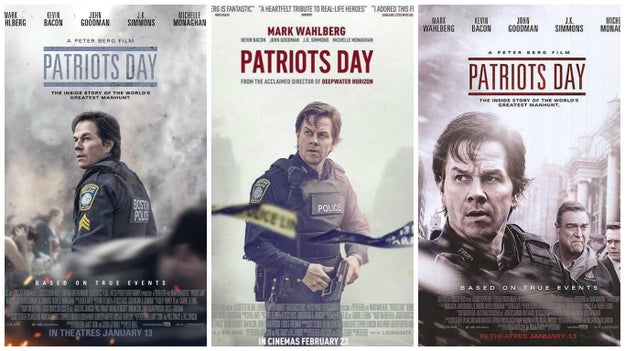
Superhero Tommy Saunders
CBS Films/Lionsgate
Because Saunders isn’t real, he’s able to do what few real heroes in sprawling events like the Boston bombing can: be everywhere, involved in everything, all while embodying the resilient spirit of the city. Mark Wahlberg’s voice is the first thing you hear in the movie’s opening, and leaning into his Boston accent, he uses phrases like “chowderheads” and “bust your balls.” He lives in a solidly middle-class home with his beautiful but not too beautiful wife. He has a hurt knee, but powers through it as he tries to keep the peace in the aftermath of the bombings and find the bombers and help the FBI with the security footage and be the first on the scene after a Chinese student’s car is hijacked and get high-fived by David Ortiz when the police officers are honored at a Red Sox game.
It’s that ubiquity that helps morph Saunders into a superhero: He doesn’t have to sleep, or obey the laws of time and transportation. He has a limp, but he’s ostensibly invincible; he’s just a normal cop, but he gets to be part of every minute of the drama. It doesn’t matter if the logistics are impossible, after all, so long as the narrative makes you feel that sort of unilateral heroism is possible.
Saunders, and Wahlberg’s portrayal of him, is one of many ways that Patriots Day becomes more than a post-9/11 film, spreading into the still-coalescing genre of Trumpian cinema. It doesn’t matter that the film’s director, Peter Berg, has not hidden his liberal politics, or that the production wrapped months before Trump’s election. Like Trump, Patriots Day valorizes a specific sort of working-class hero: Saunders and the rest of the Boston Police Department might be from a “city,” but it’s a city that’s coded as particularly American, the opposite of the so-called New York values against which many Trump supporters define themselves.
Wahlberg — a staunch Catholic who, like a superhero, thinks he could’ve personally stopped 9/11 — is the perfect vessel for this understanding. He may live in Los Angeles, but he’s the closest Boston comes to a non-athlete mascot. His participation adds an authenticity that papers over the fact that Berg is from New York, the screenwriter is from the UK, and the film introduces some blatant discrepancies with the historical record — that his character doesn’t exist, for example, or that the massive firefight between the brothers and the police, depicted as the climax of the film, has been grossly exaggerated for dramatic effect.
Mark Wahlberg has spent the last decade of his career establishing himself as a moral authority, leaving the Dirk Diggler/Marky Mark part of his image in the past.
Wahlberg has also spent the last decade of his career establishing himself as a moral authority, leaving the Dirk Diggler/Marky Mark part of his image in the past. He may star in profane films like Ted, but his characters never have sex scenes. His persona has long been rooted in his body, his physicality — not his mind. His image is that of a serious, loyal family man with a closely guarded but intermittently visible soft spot. Brash, jacked, and deeply American.
The middle of Wahlberg’s career has been defined by roles as soldiers, smugglers, trainers, shooters, dads, gamblers, and several different types of police officers — and even if he’s behaving badly, his moral compass is always right. In Patriots Day, Wahlberg’s character has been put on suspension for something ambiguous, but he’s still clearly in good favor with his commanders and “good police.” Like the rest of the police officers in the film, he’s a uniquely positive force, tasked with keeping the peace and protecting citizens; there are no negative interactions with citizens, no race-based tensions, no depictions of Islamophobia in the wake of the bombings. There is only the good fight to find the bad people — and the elision of what actually happens when a town is transformed into a police state.
The forces of the FBI, embodied in Kevin Bacon’s special agent Richard DesLauriers, are framed as bogged down in bureaucracy — too cerebral to get anything done. Saunders, by contrast, thinks with his gut, decries Bacon’s reliance on “intelligence,” declares “You don’t got no balls” and “We gotta start letting Boston work for us.” He means that they should release the blurry images of the two suspects, even though they don’t have confirmation, because they’ll catch them for sure: “This city will eat them alive,” he promises.
According to this logic, “eating bad guys alive,” regardless of due process, is an unquestionably good thing: You should do whatever is necessary to catch those who would set off bombs at the end of a marathon, maiming dozens and killing two. But that’s dangerously slippery logic — whose natural extension is the sort of totalitarian state where interrogation without representation, the revocation of Miranda rights, martial law, and life under surveillance (by neighbors, by co-workers, by ever-present cameras) become the norm. Berg’s longtime cinematographer Tobias Schliessler hints at that reality with the re-creation of surveillance footage, and surveillance angles, throughout; aerial shots, as if taken by a roving eye in the sky, abound, as does the grainy, blurry look of footage from cell phone cameras and CCTV.
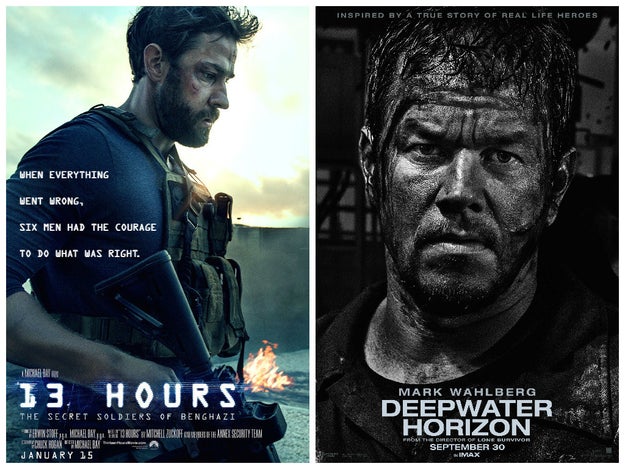
“Docbusters” 13 Hours and Deepwater Horizon.
This sort of “real life” feel is a hallmark of what film critic Amy Nicholson has dubbed the “docbuster” — films like Patriots Day; Berg/Wahlberg collaboration Deepwater Horizon; Michael Bay’s 13 Hours, based on the Benghazi embassy attack; and Clint Eastwood’s Sully. Berg, Bay, and Eastwood all do this in different ways: Berg has the shaky cam and surveillance feel; Bay specializes in heavily stylized slo-mo and deeply saturated colors; Eastwood films in a flat, no-nonsense, classical style. Different aesthetics that arrive at a similar feel of realism: Sure, this is a movie, but you are living through what happened. You viscerally experience the crash of the plane in Sully multiple times. You feel the ambush and confusion around the Benghazi embassy in 13 Hours and side with John Krasinski and James Badge Dale’s furious frustration at not being able to act.
You get disoriented during the collapse of the oil rig in Deepwater Horizon and desperately root for the capture of the brothers in Patriots Day, and then, at film’s end, the credits remind you that while there were movie stars playing the heroes, these men and women are all, or mostly all, real — and these movies, released years after the events they portray, become the audience’s primary way of understanding what “really” happened and who is to blame (usually non-Americans, bureaucracy, brown people, Islam). These films are arguments, but most are accepted as documented facts.
Such films are perfect vehicles for a Trumpian understanding of the world, one in which there are clear winners and clear losers, where environmental concerns disappear and the virility of the male ego (and, by extension, the American self-image) matters above all else. Where root causes of conflict go unaddressed; where nuance and reading and knowledge are denigrated as the provenance of intellectual sissy fools. These films “flatten journalism into a GIF,” Nicholson argues. “They frighten me.”
The Trumpian film era doesn’t start on Inauguration Day. Indeed, the success of these docbusters — and similar films, like Zero Dark Thirty, many of the superhero melodramas, even Gran Torino — signaled the vitality of this ideology long before Trump somewhat accidentally became its avatar. American Sniper’s massive success wasn’t a “surprise,” as many labeled it, so much as an understanding of the world that may have been muted, but by no means disappeared, during the Obama years.
At its best, cinema, like all forms of art, reminds us of our deep humanity, our connection to others, even those unlike us, and instills the sort of joy and sorrow that seep through into our daily lives. At its most harmful — and most Trumpian — it amplifies our worst tendencies toward xenophobia and self-aggrandizement, puffing up our chests with vague sentiments of awe and anger. Patriots Day is “just” a movie — but interrogating its messages, and those of other Trumpian docbusters, isn’t just an act of film criticism. It’s one of resistance.
Want more of the best in cultural criticism, literary arts, and personal essays? Sign up for BuzzFeed Reader’s newsletter!
If you can't see the signup box above, just go here to sign up for BuzzFeed Reader's newsletter!
Source: Buzzfeed "Patriots Day" Is The First Movie Of Trump's America

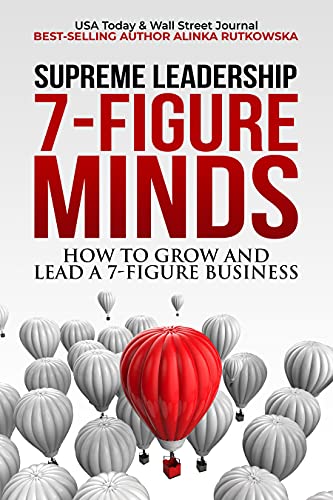
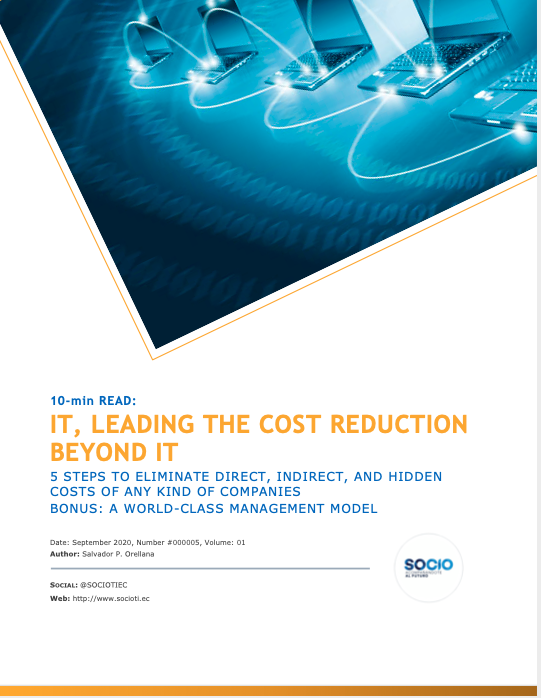

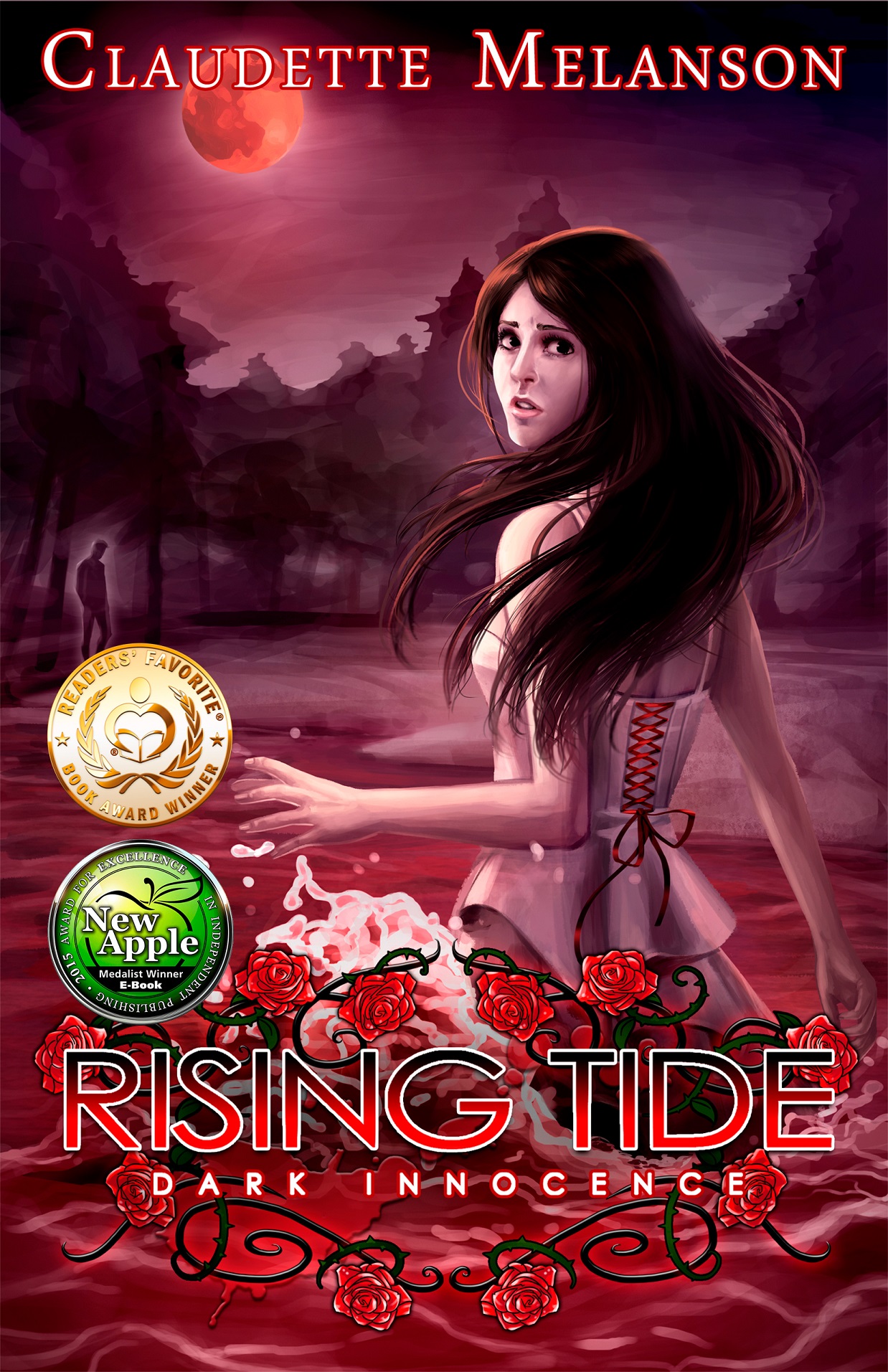

Add comment